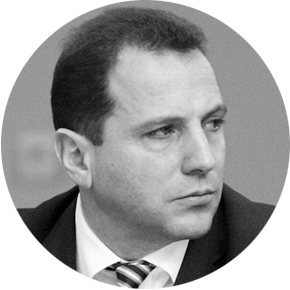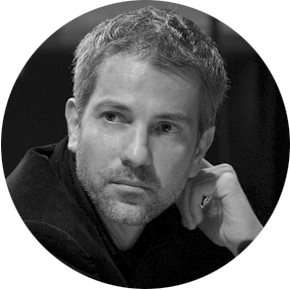First Deputy Minister of Defense Davit Tonoyan’s exclusive interview to Mediamax
- Mr. Tonoyan, recently you paid a visit to Georgia where you had a meeting with the newly-appointed Defense Minister Tinatin Khidasheli. Around a month ago Armenian Defense Minister Seyran Ohanyan said “until recently, the main threat to the South Caucasus security has been the unsettled conflicts, while now the security in the region is more realistically threatened by the countries’ conflicting approaches to the establishment of the security system in the region.” Georgia pictures its future in NATO, while Russia with which Armenia has membership in CSTO does not even want to hear about NATO presence in the Caucasus. Given these conditions, how is it possible to build cooperation based on mutual trust in the defense sector?
- The three countries in the South Caucasus have varying ideas and perceptions of regional security. The problem is that recently external factors, the escalation of relations of countries playing a decisive role in ensuring international security, considerably affect the security in our region.
I think it’s natural as it’s impossible to draw a separation between regional and international/global security levels. Moreover, certain controversies have emerged in the standpoints of European countries, which are located in the same regional security system.
As to the security environment of the South Caucasus, I strongly believe that it is first off the task of our three countries. The establishment of sustainable security environment in the region is not fully contingent on the security systems our countries adhere to.
Armenian-Georgian relations are the best example of it – although our countries aim to have membership in different security systems, we are almost unanimous about regional security matters.
Stable Armenia and stable Georgia are equally important for our countries. The numerous meetings we had over the past years focused on the detailed discussion of all security-related issues, and we have arrived at absolute mutual trust, transparency and consideration and respect for one another’s views. Thus, at least in this bilateral format we manage to neutralize the external adverse incitements. Unfortunately, the same cannot be said about Azerbaijan.
- The official press release that followed your meeting with the Georgian Defense Minister noted that military education will be one of the principal areas of cooperation. Could you please specify it a little? What will we learn from Georgia and what will we teach them?
- Our cooperation in military education has become dynamic in the recent years. It can be regarded as one of the principal areas of our cooperation. The reforms in this sector have resulted in the establishment of high-quality educational centers offering different levels of education. Also, advanced programs are worked out. And it would be unnatural if the two neighboring countries did not use one another’s capacities for staff training and education.
For example, the non-commissioned officers of the Armenian Armed Forces train at Sachkhere Mountain Training School, and the officers of the Georgian Armed Forces and public servants train at the American University of Armenia (AUA) in Yerevan.
- Armenia and Georgia participate in peacekeeping operations. Considering this, can peacekeeping become one of the targets of bilateral cooperation?
- Definitely. Peacekeeping is on the agenda of Armenian-Georgian military cooperation. Our subdivisions included in international peacekeeping operations have almost the same level of readiness and pass a relevant assessment process pursuant to NATO Operational Capabilities Concept (OCC). This shows there is no any urgent need for joint military readiness measures.
As to joint participation in international peacekeeping operations, the subdivisions of the two countries are deployed within the multinational forces. I believe if one of the two countries has the capability of stationing self-sufficient subdivisions abroad in the coming years and makes a political decision, we will then hold meetings for the representatives of the Armed Forces of the other country to engage in the deployed subdivision.
-If my memory serves me well, full Armenian-Georgian bilateral military exercises have never been conducted. What is the reason for it? Does it mean there is no need for such military exercises or do Georgia’s relations with Azerbaijan and Turkey as well as Armenia’s strategic cooperation with Russia have their share in this regard?
- I can assure you that we are not constrained by external factors in holding joint military exercises or trainings. In any case, Armenia, unlike our two other neighbors (I don’t mean Georgia) never ever attempts to politicize issues related to the combat readiness of the Armed Forces.
I believe Armenian-Georgian joint military exercises are a matter of time and they will be conducted as the occasion requires.
- Asked about the Russian military base in Armenia in a recent interview to “Russia in Global Affairs” magazine, Tinatin Khidasheli said: “Any Russian base at our borders harbors danger.” Was this question discussed at your meeting? If yes, what did you answer?
- Neither Armenia, nor Georgia links the discussion of issues of bilateral cooperation and its development to their relations with third countries. I have already said there is climate of mutual trust between our two countries. We have both asserted that we respect each other’s political stances and will never take any defense measures that will be against the interests of the other country. It is this logic that produces the climate of mutual trust, which enables us not to constrain our relations by such issues. On the contrary, considering Georgia’s ties with Azerbaijan and Turkey, and Armenia’s ties with Russia we are trying to “erect a bridge” to alleviate existing disputes.
- 10-15 years ago Armenian leaders used to frequently speak about Georgian-Turkish relations expressing Armenia’s concerns about the close military cooperation between the two countries considering the unsettled Armenian-Turkish relations. However, such statements are no longer made. Is it that the momentum of Georgian-Turkish cooperation has decreased or is it that the Georgian party has offered certain guarantees to Armenia?
- I think I answered this question a few minutes ago.
Ara Tadevosyan talked to Davit Tonoyan





















